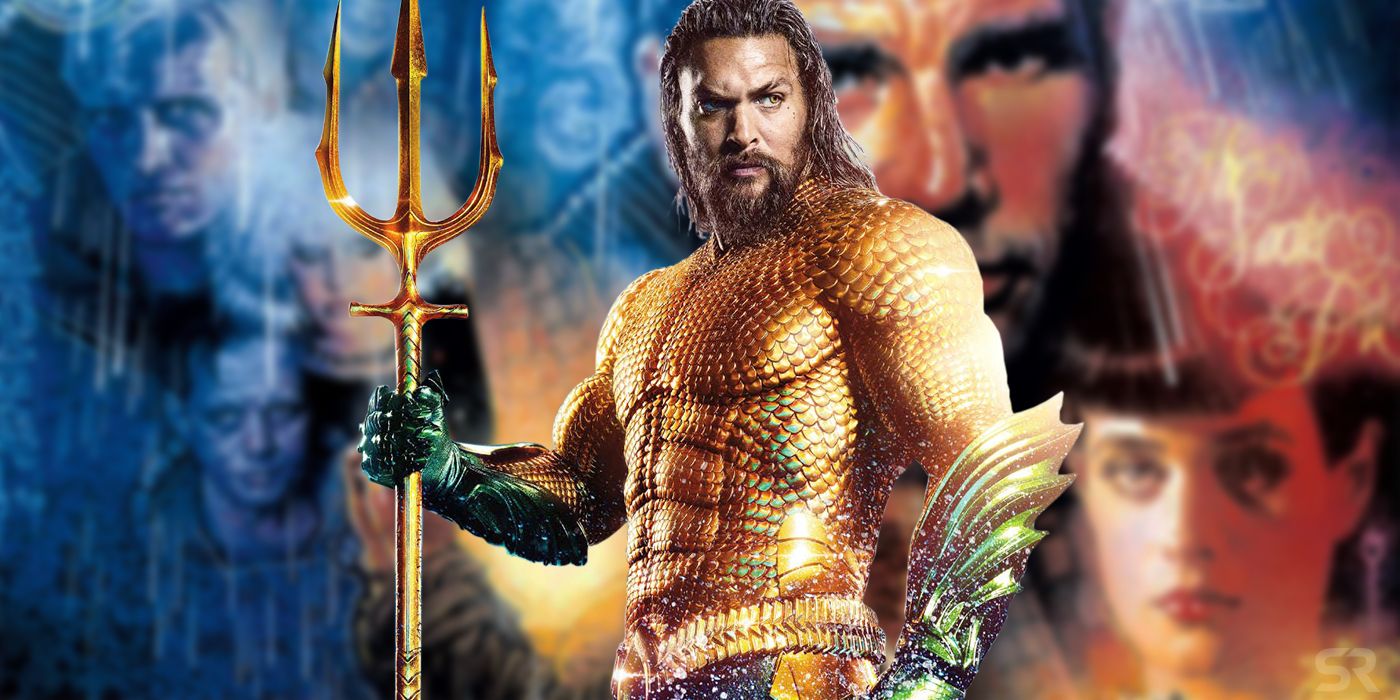
Aquaman director James Wan revealed that the film's score was inspired by Ridley Scott's neo-noir sci-fi classic Blade Runner. Having already touched on the '80s tone in the latest DC Comics adaptation, Wan revealed that the '80s era wasn't just presented as physical inspiration, but audible as well.
From the film's over-the-top action set pieces to flamboyant portrayals of characters like King Orm (Patrick Wilson) or even Arthur Curry (Jason Momoa) himself, Aquaman is hardly running short on outside influences that feel very much aligned with films that were released in the 1980s. In a decade where Arnold Schwarzenegger reigned supreme as an action movie star and science fiction films were either objectively cheesy (Flash Gordon) or universally beloved (Blade Runner), it's no wonder that a modern director would feel compelled to seek inspiration from that era. And, when it came to finding a tone for Aquaman's score, that's exactly what Wan did.
Related: Amber Heard Was Hesitant About Aquaman Until She Read the Comics
During an Aquaman junket interview with Screen Rant, Wan spoke about the inspiration behind the film - even touching on the score, which has as much of a fleshed out identity as Aquaman's unique characters and locations. And, even though some of the ocean world visuals have been compared to Pandora's bioluminescence in Avatar, and even though the film itself shares similarities with the Indiana Jones franchise, Wan revealed that Blade Runner was the biggest inspiration for Aquaman's score. While touching on various influences in the movie, he said:
"Down to the musical score, I wanted to- my inspiration was Jean-Michel Jarre, Giorgio Moroder. So, very sort of '80s sort of electronica. And Vangelis, of course, with what they did on Blade Runner. So, I really wanted that kind of flavor."

Aside from Blade Runner, the other two composers that Wan cites were both very influential in the '80s. Jean-Michel Jarre has played a big role in the rise of electronica in mainstream culture (in fact, there was even a documentary in 2015 aptly titled Jean-Michel Jarre: The Rise of Electronic Music), while Giorgio Moroder's music can be heard in everything from Metropolis to The NeverEnding Story to Top Gun (he wrote the musical backing for Berlin's "Take My Breath Away"). And, aside from Blade Runner, Vangelis' music can also be heard in films like Oliver Stone's Alexander and yet another Ridley Scott film, 1492: Conquest for Paradise.
Aquaman isn't afraid to play around with multiple tones, wearing quite a few personalities on its sleeve. So, as jarring as it might seem to pair Blade Runner, Avatar, Indiana Jones, and even the earlier films of Tim Burton together in one film, it actually works. As well-versed in horror as Wan may be, he seems very comfortable with major studio tentpoles. And, seeing as Warner Bros. has run into some trouble in the past few years in terms of keeping the DCEU afloat, it's especially rewarding to see a director willing to make such bold moves. A safer, more traditional approach may have seemed more suitable to a major studio, but judging by Aquaman's mostly positive reviews, his willingness to take chances seems to have paid off.
More: Aquaman: James Wan Inspired Willem Dafoe's Return to the Superhero Genre
from ScreenRant - Feed https://ift.tt/2RSAjBc
via IFTTT







0 comments:
Post a Comment